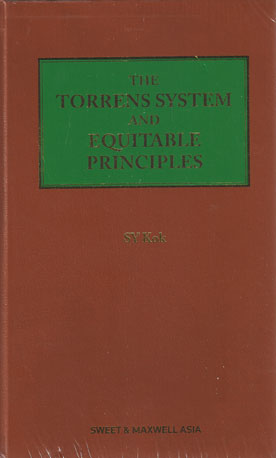
From the time Sir Robert Torrens first introduced the system of land titles by registration in South Australia via the Real Property Act 1886, the system of land law now known as the Torrens system has been adopted in many other jurisdictions around the common law world.
This is a natural development since the central features of the Torrens system, such as the conclusiveness of its register and certainty of titles and interests in land, have obvious advantages over the complicated system of unregistered land law.
However, the practical implementation of the Torrens system in the jurisdictions where it has been introduced over the years has not worked out as originally intended – quite a number of the inconvenient and disadvantageous features of the old, unregistered system of land conveyancing have found their way into various Torrens jurisdictions through the courts’ application of common law and equitable principles to land matters.
This book explores the possibility of eradicating the uncertainties, inconveniences and disadvantages of the old, unregistered system of land conveyancing; it commends a faithful and unadulterated application of Torrens principles and at the same time advocates that the application of common law and equitable principles in relation to land matters be done away with.
Practitioners, academics and anyone interested in the practical implementation of the Torrens system will benefit from this book’s in-depth analysis of pertinent Torrens issues:-